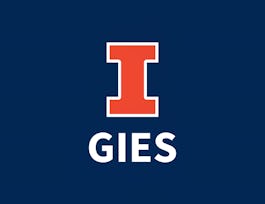This opening module of the Power of Markets course covers the basic assumptions about market participants made by economists, the concept of opportunity cost, and the key determinants of supply and demand. We will then learn how to use the supply-demand framework to explain and predict market outcomes and to show how government policies affect those market outcomes. We will look at how quantity demanded and supplied respond to their key determinants in quantitative (elasticity) as well as qualitative terms. The last two weeks of the first module will investigate consumer behavior more closely and show how consumer choices are driven by the interplay of preferences and budget constraints. We will employ the consumer choice framework to examine investor choice as well as policies such as ObamaCare and school choice. Finally, we will also address the concept of how to distribute a given amount of goods across a society’s consumers in the most efficient manner.

New year. Big goals. Bigger savings. Unlock a year of unlimited access to learning with Coursera Plus for $199. Save now.


The Power of Markets I: The Basics of Supply and Demand and Consumer Behavior

Instructor: Mark Zupan
18,821 already enrolled
Included with 
(261 reviews)
What you'll learn
Students will be able to explain basic principles of supply and demand.
Students will be able to use supply and demand to predict market outcomes.
Students will be able to summarize consumer behavior through individual preferences and budget constraints.
Details to know

Add to your LinkedIn profile
4 assignments
See how employees at top companies are mastering in-demand skills


Earn a career certificate
Add this credential to your LinkedIn profile, resume, or CV
Share it on social media and in your performance review

There are 4 modules in this course
Basic Assumptions About Market Participants and the Concept of Opportunity Cost. The Determinants of Demand and Supply.
What's included
9 videos1 reading1 assignment
Using the Supply-Demand Framework to Predict and Explain Market Outcomes as well as to Show the Impacts of Government Intervention. Some Key Elasticities of Demand and Supply.
What's included
8 videos1 assignment
Explaining Consumer Choice Through Analyzing Consumer Preferences and Budget Constraints.
What's included
9 videos1 assignment
Using Consumer Choice Theory to Analyze Investor Choice as well as Policies Such as ObamaCare and School Choice. Promoting Efficiency in the Distribution of Goods.
What's included
9 videos1 assignment
Instructor

Offered by
Recommended if you're interested in Business Essentials

Coursera Project Network

McMaster University

University of Illinois Urbana-Champaign

Columbia University
Why people choose Coursera for their career




Learner reviews
261 reviews
- 5 stars
73.56%
- 4 stars
19.15%
- 3 stars
4.59%
- 2 stars
1.14%
- 1 star
1.53%
Showing 3 of 261
Reviewed on Mar 11, 2019
Great course to introduce yourself to basic concepts in microeconomics!
Reviewed on Dec 22, 2022
This course was both a quality course for introduction into microeconomics and also surprisingly fun.
Reviewed on Oct 6, 2018
it is a very good course. i understand many things on demand and supply and different curves . thank you...........
New to Business Essentials? Start here.

Open new doors with Coursera Plus
Unlimited access to 10,000+ world-class courses, hands-on projects, and job-ready certificate programs - all included in your subscription
Advance your career with an online degree
Earn a degree from world-class universities - 100% online
Join over 3,400 global companies that choose Coursera for Business
Upskill your employees to excel in the digital economy
Frequently asked questions
Access to lectures and assignments depends on your type of enrollment. If you take a course in audit mode, you will be able to see most course materials for free. To access graded assignments and to earn a Certificate, you will need to purchase the Certificate experience, during or after your audit. If you don't see the audit option:
The course may not offer an audit option. You can try a Free Trial instead, or apply for Financial Aid.
The course may offer 'Full Course, No Certificate' instead. This option lets you see all course materials, submit required assessments, and get a final grade. This also means that you will not be able to purchase a Certificate experience.
When you purchase a Certificate you get access to all course materials, including graded assignments. Upon completing the course, your electronic Certificate will be added to your Accomplishments page - from there, you can print your Certificate or add it to your LinkedIn profile. If you only want to read and view the course content, you can audit the course for free.
You will be eligible for a full refund until two weeks after your payment date, or (for courses that have just launched) until two weeks after the first session of the course begins, whichever is later. You cannot receive a refund once you’ve earned a Course Certificate, even if you complete the course within the two-week refund period. See our full refund policy.

